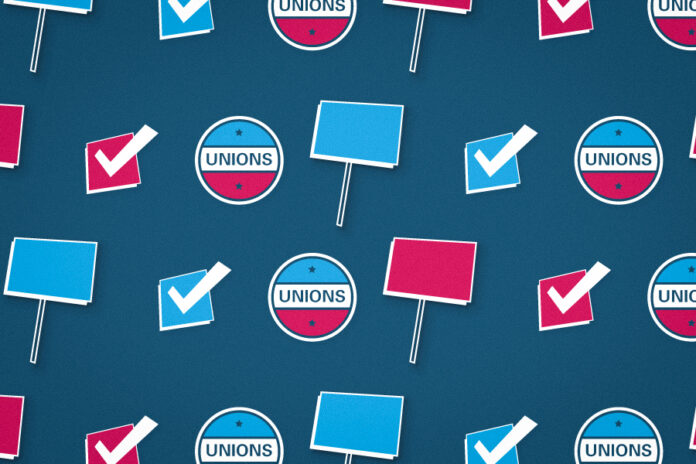General functions, benefits of a labor union
Better working conditions, higher pay, health insurance, job security and a voice in the employment process — these are some of the benefits that unions aim to secure for the employees they represent.
There are myriad unions across the country that look out for the best interests of their members. The American Federation of State, County and Municipal Employees Local 3299 (AFSCME), which represents over 25,000 UC employees, is one such union.
John de Los Angeles, a PR representative for AFSCME 3299, said that a union is “working people standing together for the purposes of ensuring that their best interests are being represented.” This is achieved through collective bargaining with employers.
Last October, AFSCME 3299-represented employees participated in their second three-day strike after over a year and a half of negotiations with the UC failed to result in a mutually-agreeable contract. Strikes are a last-ditch effort by unions in which employees withhold labor and forego pay to place pressure on employers in hopes that their demands will be met.
“In [regard] to the UC situation, one of the biggest issues is job security itself: what good is a wage or a benefit if your job is outsourced?” de Los Angeles said. “We want to make sure that the university is committed to equal opportunity standards and address outsourcing.”
AFSCME 3299 in particular is fighting for job security and against outsourcing. When the UC outsources labor, “they push the average market wage down outside,” de Los Angeles explained. He added that when jobs are outsourced, the individuals who obtain these jobs without representation are negatively affected as well.
“When we are advocating for represented workers, we are fighting for underrepresented workers; when we get a good deal, they get a good deal,” he said.
When asked about the benefits that come with being unionized, John Rundin, a classics lecturer and a site representative coordinator for University Council-American Federation of Teachers Unit 17 (UC-AFT), which represents UC librarians, said that “without unions it’s just up to the whim of the boss” and workers have no say in how they are treated.
“If you don’t have a union and if your boss doesn’t violate a law, the boss can do whatever they want,” Rundin said. “There is no recourse if they don’t break the law.”
Labor unions have a simple structure in that they function like a democracy. Workers hold elections and vote for officers who will make decisions on their behalf. Many unions also engage in lobbying efforts and participate in local or even national elections.
The work that union officers do as part of their positions, as well as other union expenditures, are typically covered by union fees — monthly fees that all members of the union are required to pay.
Rundin explained that although there are certain employees who choose not to be involved in a union’s activities, they might still benefit from the union’s work because, “by law, unions typically must represent everyone who is in a given job.”
No matter the size of the union, the rights of the union members and the responsibilities of the union officers are protected and outlined by the Labor Management Reporting Disclosure Act (LMDRA). These rights include freedom of speech, a say in the rates of dues and fees and the right to elect officers and representatives as well as remove them.
Even if an employee has the option to join a union, they might not choose to do so or may have hesitations. Lucy Joseph, the vice president of UC Davis’ local University Professional and Technical Employees (UPTE) CWA 9119, said an individual might be hesitant to join because they are ideologically opposed to the mission of a union.
In response, Joseph said that “everyone should have a say in what happens in their workplace.”
“Relying on the good will of your employer doesn’t always work,” she said.
Rundin, however, had a different approach.
“If you are in a position and you choose not to be in a union, you tell the people that are doing the work in the union [that] their work is worthless,” he said.
Employees might also be hesitant about participating in strikes, but strikes “are always a last resort for unions,” Joseph said.
“When our voices are not being heard, all we can do is withhold our labor,” she explained. “That is our last bargaining chip.”
Written by: Alexis Lopez-Perez — campus@theaggie.org






This is such a shamelessly one-sided article that it should have “Disclaimer: The views and opinions expressed by individual columnists belong to the columnists alone and do not necessarily indicate the views and opinions held by The California Aggie.” at the bottom.
Thank you, this is so clearly presented. I am always amazed at people who somehow think that unions are not worth joining. They will be lonely at the bottom of a hierarchical system that doesn’t respect its workers, and, unfortunately, there will always be greed.